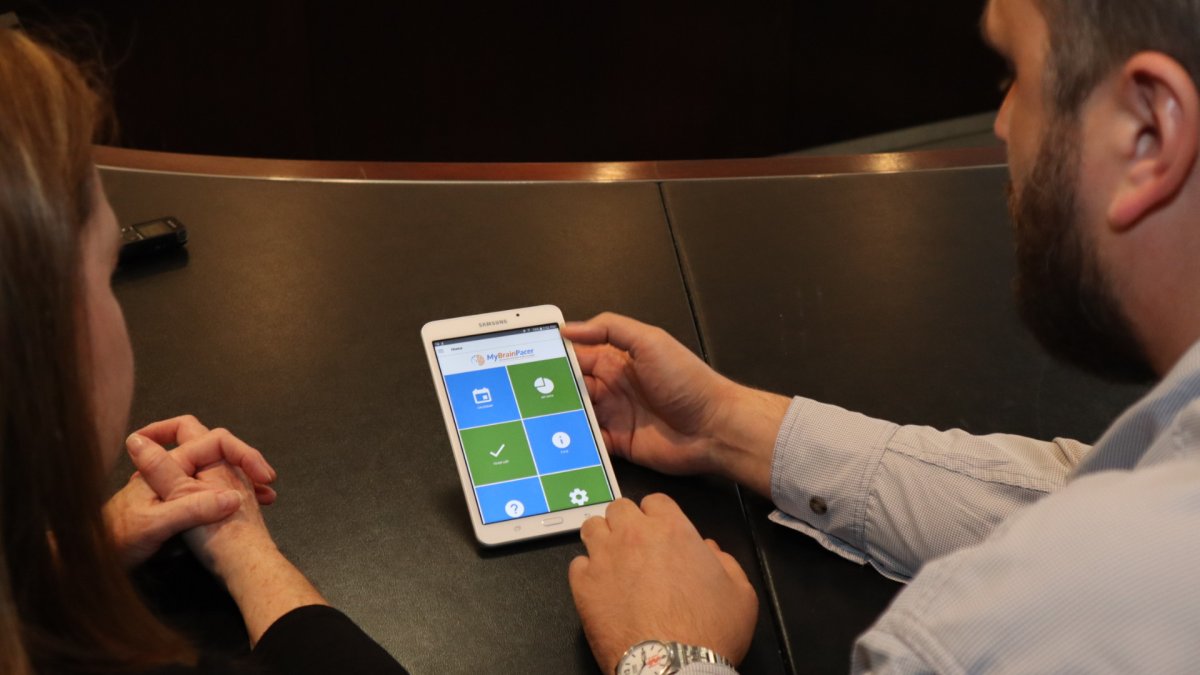Along with Pride Month, June also marks International Brain Injury Awareness Month.
And to raise awareness and encourage recovery, a team at Lawson Health Research Institute and St. Joseph’s Health Care London has created a new online tool to help people living with a mild traumatic brain injury (mTBI).
MyBrainPacer is an app that helps track and organize brain activity in patients suffering from an mTBI in the hopes of finding a personalized level of activity to promote individual recovery.
“By documenting activity levels over time, patients and their clinicians can better understand what activities are linked to worsening symptoms, which they can therefore avoid,” explains Dalton Wolfe, a Lawson scientist.
Lawson Health Research Institute is one of the top hospital-based research organizations in Canada. Working in partnership with Western University, Lawson is also the research institute of London Health Sciences Centre and St. Joseph’s Health Care London.
“There are about 150,000 people with concussions every year in Ontario and around 15 per cent struggle with persisting symptoms,” Wolfe said.
Mild traumatic brain injuries, including concussions, are the most common type of traumatic brain injury. Symptoms can include headaches, fatigue, depression and anxiety, irritability, and impaired cognitive function.
“Therapists have really tried to devise a strategy to help their patients deal with those symptoms — for example, using planners to anecdotally record what they’re doing,” Wolfe said. “But we know how easy it is for people to fall off the rails doing that. So, something more structured like an app that people use can be a more systematic way to do that is certainly a new attempt.”
Similar to point-tracking systems used by dieters to monitor food choices, the MyBrainPacer app allows users to assign personalized values to tasks, such as driving, grocery shopping, exercise and screen use, so they can plan and pace their daily activities while in recovery.
Users are also given a total number of points per day that will keep their lingering symptoms in a “safe range.” The app also adjusts the daily point value to what is best for the user as they track their symptoms.
However, Wolfe added that it’s important for patients to properly monitor and not get distracted by an abundance of exciting activities.
“The problem is that people sometimes overdo it and forget that they’re still in recovery,” Wolfe said. “The result in them overdoing it is that the symptoms may not manifest until later. But when they do, those terrible symptoms may last again for quite a long time, and it sets their recovery back.”
Wolfe said it’s about finding the individualized level of activity that a person should do in a day so that they don’t exacerbate their symptoms, something he hopes the app will effectively be able to track.
“By putting the app in the hands of patients and the clinicians who treat them, it has the potential to give us data that traces the recovery patterns of patients and how that relates to the activities that they participate in over time,” Wolfe said. “This will enable us to document safe levels of activity for persons with specific characteristics or symptom profiles, which could be the key to unravelling better treatment strategies.”
The app is based on St. Joseph’s Pacing and Planning Program, which, according to Wolfe, has helped hundreds of concussion patients achieve their recovery goals.
Cindy Vanderveen, a study participant from St. Joseph’s who has suffered a number of concussions, has been using the app to manage her brain injury and says she has noticed a positive change.
“In the beginning, I wasn’t able to drive farther than five minutes at a time,” Vanderveen said.
“Once I began to use the app to plan and track my activities, my symptoms dramatically decreased. I still have bad days and some tasks are harder than others, but through using the app, I am able to do more activities independently and I am 90 per cent back to who I was.”
Wolfe said this is an example of another research benefit in understanding the relationship of symptoms with activities and how they vary over a large number of people.
“We can start to learn and get a better sense of a natural recovery process for people with concussions and persistent symptoms,” Wolfe said.
According to Lawson Health Research Institute, anyone with an mTBI can enrol as a study participant on the MyBrainPacer App by visiting mybrainpacer.ca.
The research team is hoping to enrol approximately 5,000 users.
The app is still in the development stage as researchers work to “fine-tune” the final product so that it not only promotes recovery, but also promotes a newfound partnership between clinicians and patients “as they work to try to overcome this challenge together,” Wolfe said.
